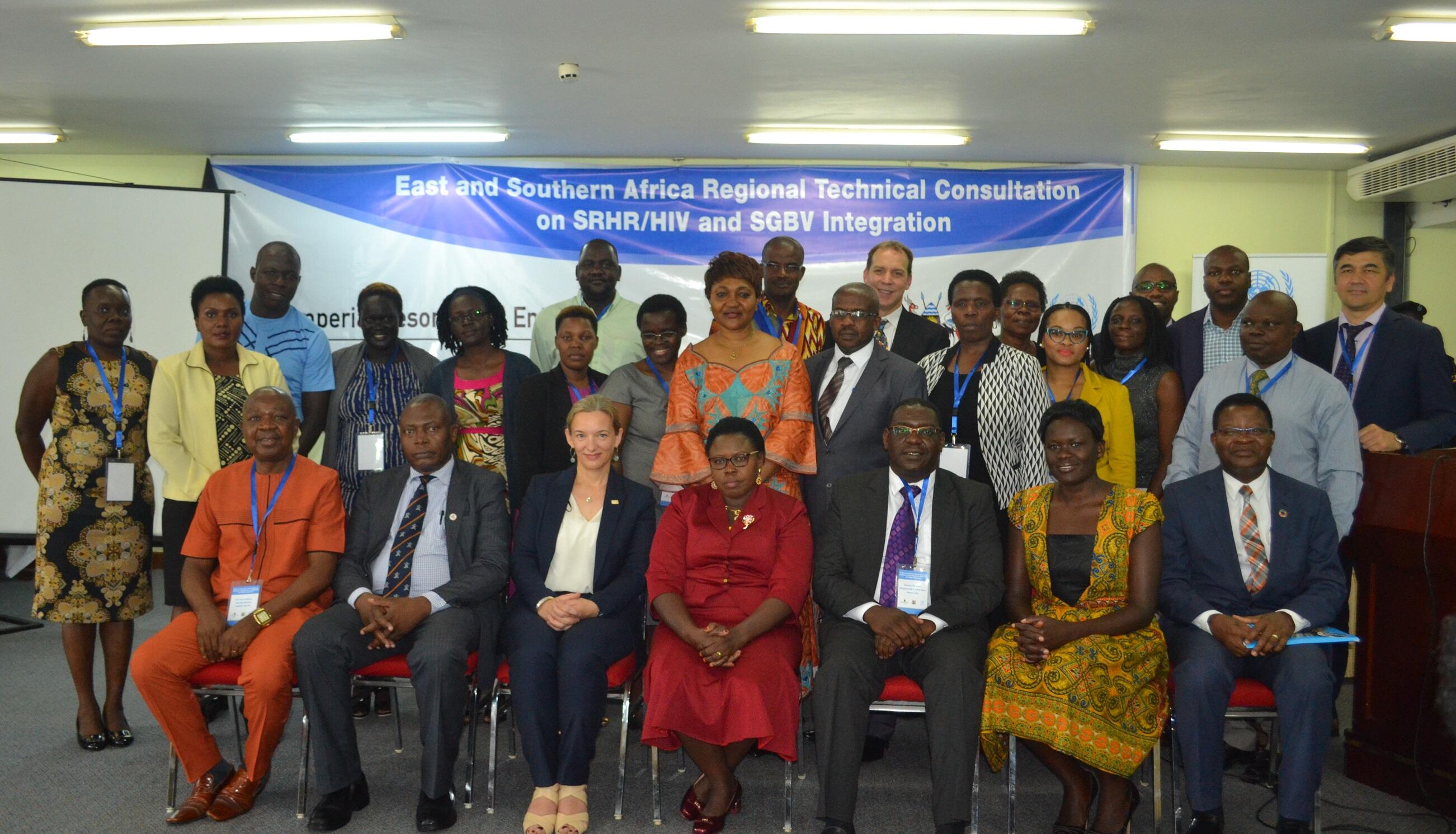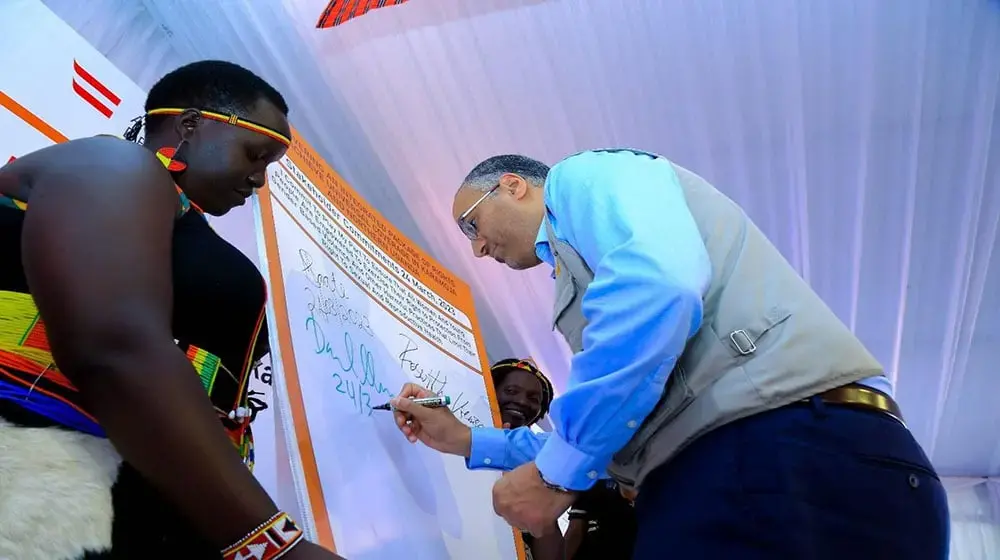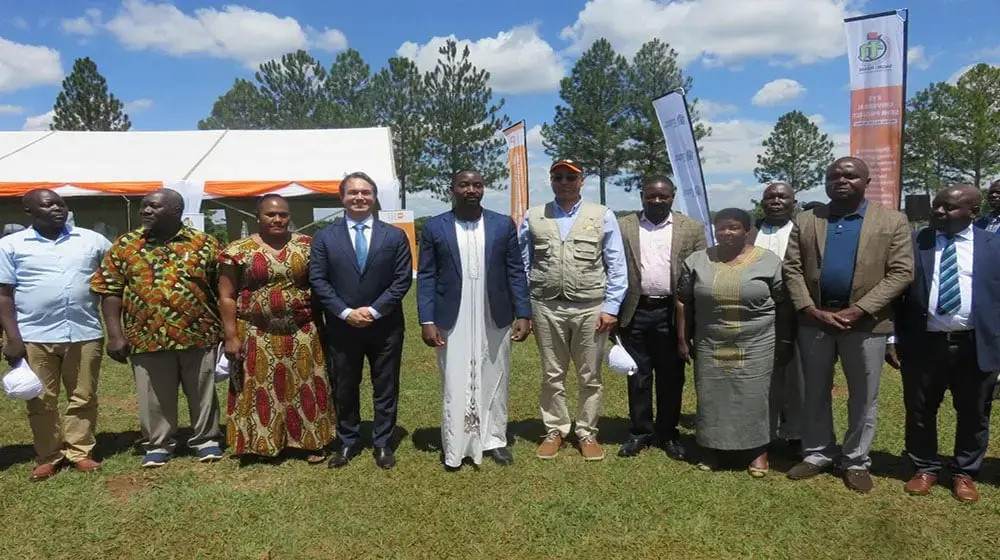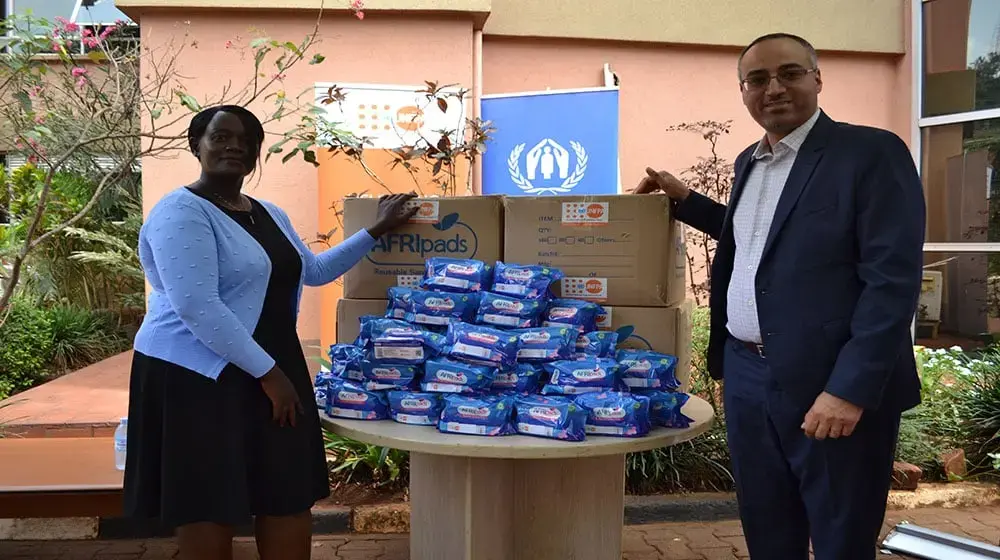From October 30 to November 3 2017, Uganda hosted a series of meetings on integration of Sexual and Reproductive Health and Rights and Sexual and Gender Based Violence prevention and HIV programmes. The meetings, organised under the leadership of the Minister of Health of Uganda, UNFPA East and Southern African Regional Office (ESARO), UNFPA Uganda and UNAIDS Regional Support Team for Eastern and Southern Africa (RST ESA), brought together participants from the UN, regional governments, civil society, the East African Community (EAC) and Southern African Development Community (SADC). They kicked off with a planning meeting for the Joint UN Regional Programme to Strengthen Integrated Sexual and Reproductive and Rights/HIV and Sexual and Gender based Violence in East and Southern Africa. The programme is implemented in Lesotho, Malawi, Uganda, Zimbabwe and Zambia.
Following on the heels of the Planning meeting was the Regional Technical Consultation on integration, which was held concurrently with a National Dialogue meeting on SRHR/HIV and GBV integration. Rounding off the week was a meeting of the Steering Committee of Linkages, a UNFPA / UNAIDS joint programme funded by the Swedish Government under the Swedish International Development Agency (SIDA).
The meetings aimed at discussing progress, lessons and challenges countries have experienced in implementing integration programmes and planning for future interventions. Integration involves bringing together different types of sexual and reproductive health and rights, HIV and sexual and gender-based violence interventions to ensure access to comprehensive services in an efficient and effective manner. A total of 15 countries in the East and Southern African Region were represented at the meetings*.
Speaking at the opening of the Planning Meeting, UNFPA ESARO Deputy Regional Director Ms. Justine Coulson hailed the Government of Uganda, led by the Ministry of Health, for its commitment to making integration a reality for communities at the grassroots. “The national dialogue, held alongside the technical consultation brings together all District Health Officers who are the individuals that really change the face of primary health care at district level,” she said.
UNFPA Uganda Representative Mr. Alain Sibenaler noted that implementation of integration strategies should specifically focus on issues of gender-based violence prevention. He also emphasized the importance of addressing the needs of young people, noting that Uganda and other countries in the region have youthful populations that have the potential to drive socio-economic development.
“This is the time to invest in young people’s health, education, livelihoods and occupational opportunities. It is also time to address inequalities and elevate the socio-economic status of girls and women in the region to enable them exploit their potentials,” he said.
During the course of the meetings, participants shared experiences on the results achieved, lessons learnt and good practices in implementing integration programmes. From reducing waiting time by 35% among antenatal care clients in Namibia, to creating safe spaces for women and adolescent girls in humanitarian settings in Uganda, there was a lot to learn. Across the board, participants agreed that while a lot had been achieved there is need to strengthen research and documentation of results in order to provide compelling evidence of the benefits of integration.
On behalf of the Ministry of Health, the Permanent Secretary Dr. Diana Atwine pledged to personally oversee integration efforts in Uganda and called for additional support from the UN and other partners to make this happen.
*Participating countries
Botswana , Burundi, Comoros, Democratic Republic of the Congo, Ethiopia, Kenya, Lesotho, Madagascar, Malawi, Namibia, Rwanda, South Africa, South Sudan, Swaziland, Tanzania, Uganda, Zambia & Zimbabwe





